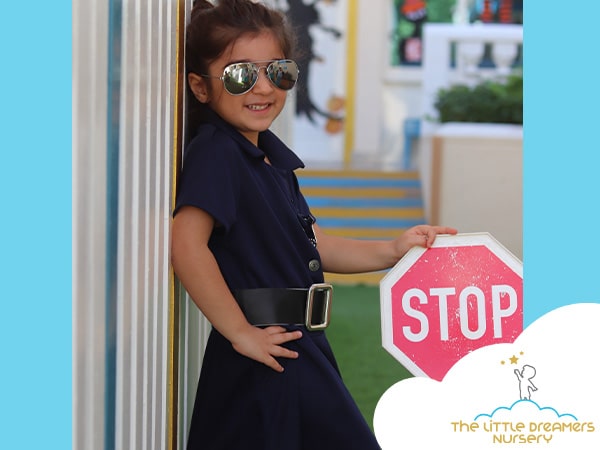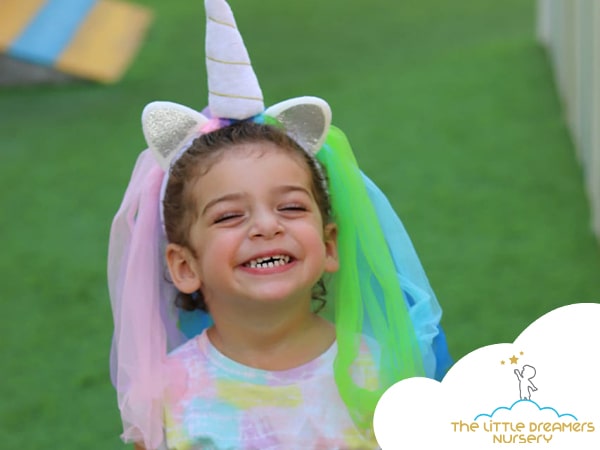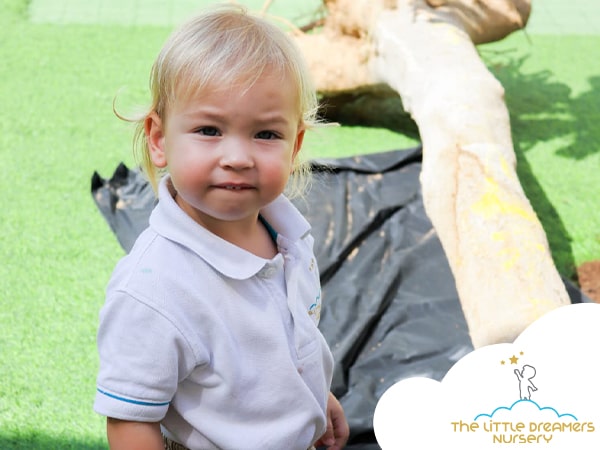What is the best age to start nursery?
Determining the best age for nursery or preschool depends on several factors. These factors can sometimes make it difficult for parents to make decisions. Most schools and kindergartens have specific policies regarding admissions when it comes to the age of the children but sometimes their policies are not suitable for all. Many children at the age of 5 or 6 have the basic social, physical, and scientific abilities to enter kindergarten; but children who are born in the second half of the year and are older than other children in the class or those who enter kindergarten a little late can go to school a year earlier. Join us to learn more about the best age for nursery.
Is the age for Nursery the same for all children?
Postponing the arrival of a child to kindergarten is a decision that is gradually being welcomed. However, Dr. Kathryn Garforth, an education expert and counselor says that this is not the right decision for all children. Dr. Garforth conducts private kindergarten assessment courses.
The ancillary needs discussed are not science, such as a child’s ability to read or count numbers. These skills are mostly related to a certain level of self-sufficiency. “When children enter daycare, they should be able to do self-care activities such as eating, washing and putting on shoes and clothes independently,” says Garforth. These skills must be practiced from an early age. “Choose the right clothes for school so that they can easily go to the bathroom and put on their coats or jackets themselves.”

In addition to having the necessary motor skills, children also need social skills to go to kindergarten. According to Garforth, “Emotionally, children need to be able to distance themselves from their parents, understand how to do things in turn or together and play with their peers.” Both parents and children may have difficulty separating from each other but these skills must be developed before kindergarten begins. According to Garforth, “Parents can allow children to play with other children and thus support those abilities. Registering children and taking them to centers that hold group programs or leaving them alone with trusted family and friends for a certain period of time will be helpful.” The age for nursery class is an important factor in sending children to kindergarten.
Don’t miss these articles:
What should a 4-5 year old know academically
Why Is Early Childhood Education Important?
Determining how social children are can be difficult. Parents should monitor their child’s behavior with their peers and follow instructions outside of the home (for example, in the library or at a friend’s house). Children must also defend themselves because a child who cannot ask for help will have difficult times ahead.
Scientific research on the age for nursery and its ratio to success in adulthood
According to research, about 4 to 6 percent of children go to kindergarten later than others. Many parents who decide to postpone the start of kindergarten want to make sure that the children are emotionally ready to start school. Others do not want their children to be bigger or smaller than their classmates. But what is the critical point in determining the best age for kindergarten for children?
Of course, there is no definitive result in this regard. In fact, the evidence for the best age for nursery and the official start of school is often contradictory.
To begin with, there is a lot of evidence to suggest that postponing kindergarten startups is beneficial for children. For example, a study by Stanford University researchers looked at more than 90,000 families in Denmark.
This study found that delaying one year of starting kindergarten significantly reduces inattention and hyperactivity among children and the effect lasts until the age of 11. A similar study of American kindergarten children found that children who went to kindergarten later had greater emotional abilities and social development. However, the effect of these benefits did not last until the first and second years of high school.

Why is it better to postpone the age for nursery by a year?
If you delay starting nursery in Dubai, your child may be more eager to sit in the classroom. Whether your 5-year-old sits in the classroom and does the programs assigned to them depends entirely on their age as younger children are usually a little more stubborn in doing these activities. Research shows that sometimes the cause of children’s behavioural problems is misdiagnosed and it is their younger age in comparison to their other classmates. Research According to a study conducted at Stanford University, the level of inattention and hyperactivity in children who go to kindergarten with a delay of one year is significantly lower, and these results continue even until they are 11 years old.
Related article: Is Delaying Kindergarten A Good Idea?
What should we do now? The best decision for the best age for nursery
With all this information, you probably still do not know what decision to make: what is the right answer? Answer: Everything depends entirely on the child.
“As much as possible, children should be with their growing peers because kindergarten does not only work on scientific skills but also includes the social development of children. With this in mind, every child is unique. “Parents should determine the best age for nursery with the knowledge they have of the child and with the help of a counsellor.”
According to Lapen, parents should talk to their child’s preschool teacher (if any), consider the kindergarten curriculum in which their child is to be enrolled, and ask, “Is kindergarten where the child will progress scientifically and socially?” If the answer to this question is yes, do not delay starting school. We should not forget to evaluate each child about his situation.
Why The Little Dreamer Nursery?
The Little Dreamers Nursery invites parents to visit and experience the warmth and magic first hand through a nursery tour, we can then support you in completing the next steps for enrolment after checking out the curriculum and enrollment as follows:
Pre-Kindergarten Age: When Is the Ideal Time to Enroll
Embarking on the educational journey of a child is a profound decision, and choosing the right time to introduce them to the enriching world of pre-kindergarten is crucial.
At The Little Dreamers Nursery, we understand the importance of this decision and are here to guide you through the optimal age for enrolling your little one into pre-kindergarten.
What is the Best Age for Pre-Kindergarten?
Determining the ideal age to enroll your child in pre-kindergarten can vary based on several factors, including the child’s developmental readiness and the specific pre-kindergarten program. However, on a general note, most children typically start pre-kindergarten between the ages of 3 and 4.
Understanding the Minimum Age for Pre-Kindergarten
Pre-kindergarten programs usually have a minimum age requirement, and this often falls between 2.5 to 4 years. This criterion is set to ensure that children have reached a level of physical, emotional, and cognitive development that enables them to engage effectively in a structured learning environment.
What Age Do Children Start Preschool?
Preschool is often the first step in a child’s educational journey. Most children start preschool around the age of 3. However, the enrollment age can vary from one preschool to another. At The Little Dreamers Nursery, we believe in flexibility and accommodating the unique needs of every child.
Why Early Education Matters
Early education lays the groundwork for a lifetime of learning and growth. It is during these formative years that children absorb information like sponges and develop fundamental skills and attitudes that will shape their future. At The Little Dreamers Nursery, we firmly believe in the significance of early education and its enduring impact on a child’s life.
Building Strong Foundations
Early education provides the necessary foundation for children to succeed academically and socially. The skills and knowledge acquired during this period set the stage for more complex learning as they progress through their educational journey.
Nurturing Social and Emotional Growth
In a structured early education setting, children have the opportunity to interact with peers and teachers. This interaction fosters social skills, cooperation, and emotional regulation, laying the groundwork for healthy relationships in adulthood.
Enhancing Cognitive Development
Early education exposes children to various stimulating activities and experiences that enhance cognitive development. From problem-solving to critical thinking, these experiences foster a love for learning and the ability to think analytically.
The Role of Play in Early Education
Play is a central component of early education. It’s not just fun; it’s fundamental to a child’s development. Through play, children learn to explore, experiment, and imagine, all of which are crucial aspects of their overall growth.
Read more: The Importance of Play-Based Learning in Early Childhood Education
Physical Development Through Play
Physical activities during playtime promote motor skills, coordination, and a healthy lifestyle. Running, jumping, and playing games contribute to the development of a child’s muscles and bones.
Read more: The Importance of physical development activities
Cognitive Development Through Play
Play often involves problem-solving, reasoning, and understanding cause and effect. Whether it’s building with blocks or solving puzzles, these activities engage a child’s brain and encourage cognitive growth.
Social and Emotional Development Through Play
Play allows children to negotiate, share, and communicate with their peers. It helps in developing empathy, understanding emotions, and building relationships.
Read more: Top Personal Social and Emotional Development Activities for 2-5-year-olds
Choosing the Right Early Education Center
Selecting the right early education center is a crucial decision for parents. It’s essential to find a nurturing and stimulating environment where your child can flourish. At The Little Dreamers Nursery, we offer a holistic approach to early education.
Our nurturing atmosphere, experienced educators, and engaging activities provide an ideal setting for your child’s early learning journey. We strive to create a love for learning in each child, ensuring they are well-prepared for the educational path that lies ahead.
Tailoring Education to Each Child’s Pace
We understand that every child is unique and may develop at their own pace. Hence, we carefully consider each child’s readiness, interests, and developmental milestones when determining the ideal time for them to start pre-kindergarten.
Our nurturing and experienced teachers work closely with parents to gauge the child’s readiness for the transition into pre-kindergarten. We believe in a collaborative approach, ensuring that the child is comfortable, excited, and ready to embark on this exciting educational journey.
Invest in Your Child’s Future Today
Early education is an investment in your child’s future. By providing a strong foundation, nurturing their social and emotional growth, and encouraging cognitive development through play, you’re giving your child the best start possible.
Choosing the right time to enroll your child in pre-kindergarten is a significant decision. We strive to create a warm and inviting environment for your child, encouraging their growth, learning, and development.
Join us at the best nursery in Dubai, where we celebrate every child’s unique potential and provide them with the best early education experience. Together, let’s make the beginning of their educational journey truly magical.










Thanks for article. Could you please add some external sources to read more about this topic?
Thank you. We will add some external links for you.